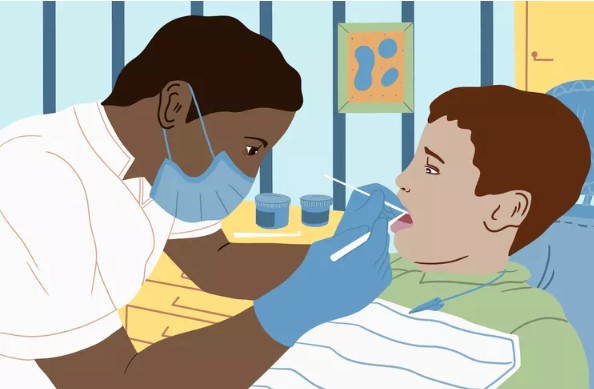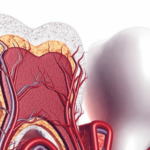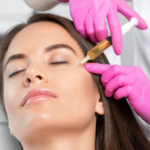
Overview
We think it’s important yet underappreciated how oral bacteria contribute to COVID-19 co-infection. It is thought that poor oral hygiene is a key ecological pressure that causes complex microbial communities in the mouth to enter dysbiosis. The dysbiotic ecosystem’s ecological changes support a rise in the prevalence of pathogenic oral bacteria. Mastication, flossing, and tooth brushing are examples of daily activities that might cause bacteremia, which promotes the hematogenous spread of oral bacteria and inflammatory mediators and causes systemic inflammation in some people. As a result, maintaining or reestablishing the oral symbiotic balance as well as preventing the transmission of oral germs to other parts of the body all depend on good dental hygiene.
Dental Problems During Covid-19
Many people experienced periodontal disease and poor oral health during the massive COVID-19 outbreak. There is a chance that oral secretions could be sucked into the lungs of someone who has a lung infection, which could lead to infection. Porphyromonas gingival is, Fusobacterial nucleatum, and Prevotella intermedia are a few of the oral germs that can lead to these diseases.
One of the most frequent causes of dangerous bacterial infections is periodontitis or gum inflammation. These microbes cause the production of cytokines including Tumor Necrosis Factor (TNF) and Interleukin 1 (IL1), which are found in saliva and can infect the lungs. Poor oral hygiene can increase the risk of bacterial exchanges between the mouth and lungs, respiratory infections, and perhaps post-viral bacterial sequelae.
How does oral hygiene reduce the risk of viral infections?
Since this is virtually unachievable, oral hygiene does not aim to completely eradicate all viruses, bacteria, and fungi from the oral cavity. Instead, it is the preservation of the environment’s non-pathogenic bacteria equilibrium. Maintaining this equilibrium lowers the possibility of contracting viruses and other infections. This is achieved through the regular use of antibacterial mouthwashes and by getting rid of plaque, dangerous crypts, and tonsil pockets that contain biofilms with high concentrations of germs.
Can Poor Oral Hygiene Increase the Risk of Contracting COVID-19?
Yes, just to be clear. By way of the mouth and nose, viruses like COVID-19 can enter the body. They usually adhere to the liner before internalising, which is the process by which they infiltrate healthy cells. A sore throat is the result of this. By acting as reservoirs for the virus, the nose, the back of the nose, and the throat all contain ACE2 receptors, which are COVID-19 receptors.
Tips for maintaining good Oral Hygiene
The guidelines advise practising excellent basic hygiene, such as proper handwashing, social distancing, and refraining from touching your face, to help lower the risk of COVID-19. Additionally, maintaining good dental hygiene is essential to avoiding illness for you and your family. Here are some suggestions for good oral hygiene. Many individuals are unaware that toothbrushes can contain saliva, blood, and pathogens. In addition to contributing to poor hygiene over time, incorrect toothbrush maintenance also increases the risk of viral infections like COVID-19.
Clean And Disinfect Your Toothbrush
For up to three days, coronavirus can stay on surfaces like toothbrushes. Even so, you can regularly sanitise your toothbrush by immersing it in 0.5 per cent hydrogen peroxide for up to 15 minutes. The COVID-19 bacteria can be eliminated by this solution in about a minute. Make sure your toothbrush is rinsed off before brushing.
Replace Your Toothbrush
Every three to four months, everyone should switch out their disposable or electric toothbrush heads. Dentists advise changing them more frequently throughout the coronavirus pandemic. at the very least, every three months.
Store Your Toothbrush Properly
After each usage, let the toothbrush air dry by keeping it upright. By doing so, bacteria are prevented from spreading and growing.
Practice Good Oral Care at Home
It is always important to maintain good dental hygiene at home to avoid diseases like cavities, gum disease, and others. However, to stop the coronavirus pandemic from spreading, it is very important to eradicate bacteria and germs in your mouth, use an antiseptic mouthwash.
- To eradicate bacteria and germs in your mouth, use an antiseptic mouthwash.
- Fluoride your water and drink a lot of it.
- Use fluoride toothpaste to brush your teeth twice daily.
- Use dental floss every day to get rid of plaque accumulation.
- Reduce your alcohol intake and quit smoking.
Wash Your Hands Regularly
The Guidelines advise hand washing for at least 20 seconds several times each day to stop the spread of COVID-19. If for any reason you must leave your home, wash your hands as soon as you get inside. The coronavirus can also be killed by hand sanitizers with at least 60% alcohol in them.
Avoid Touching Your Face And Mouth
Avoid touching your face, lips, mouth, eyes, or ears with dirty hands in addition to regularly washing your hands and keeping your home clean. Avoid doing everything you can to prevent COVID-19 from spreading if you bite your nails.
Takeaway
The habit of keeping good dental hygiene has been proven to keep your mouth healthy and free of disease. The basic oral hygiene technique should be practised at least twice daily: regular tooth and tongue brushing. It also helps to rinse your throat with antibacterial mouthwash. A healthy salivary flow derives from enough hydration, which helps to wash away numerous germs and dangerous organisms. Regular professional cleanings and routine examinations with your dentist are also essential and strongly advised.




